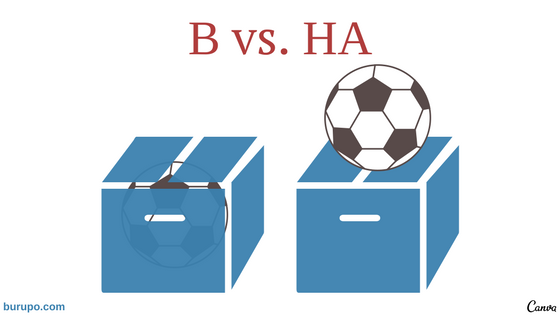Do you always use В and НА in the prepositional case correctly? Check yourself and revise rules with this dialogue test! Maybe, you will even learn something new.

Dialogue
Would you use ‘в’ or ‘на’ in these sentences? Can you explain your choice? Click on the section to check you answer.
Лена:
на почте
Although according to the general rule, we use ‘в’ for buildings and other closed spaces, there are always a few exceptions.
Just remember these patterns: на почте, на заводе, на фабрике.
Маша:
в России, в Москве
Countries, cities, towns, villages, regions, states and other parts of the country, names of the continents, parts of the continents deserts, parks, forests usually require ‘в’.
But remember, that there will be ‘на’ for islands and peninsulas. Words ‘континент’ and ‘родина’ are also used with the preposition ‘на’.
We say:
- ‘на Камчатке’ (peninsula), but ‘в Камчатском крае’ (name of the region in Russia);
- ‘на континенте’ (word ‘континент’), but ‘в Африке’ (name of the continent);
- and ‘на Кубе’, as the country and the island have the same name.
Лена:
на юге, на севере, на востоке, на юго-востоке
We use ‘на’ with any direction. When these words determine not just directions, but geographic regions there still will be ‘на’.
Маша:
в центре
We say ‘в центре’, but ‘на краю,’ ‘на окраине’ (as they are opened from one side).
Лена:
в музеях
Do you remember the general rule? ‘В’ is used for buildings and other closed spaces. And museum is a building, isn’t it?
But be aware of these exeptions: на почте, на заводе, на фабрике.
в библиотеке
The rule is the same as in the previous example. ‘В’ is used with buildings and other closed spaces. The library usually has its building.
And keep in mind the exeptions: на почте, на заводе, на фабрике.
на стадионе
According to the general rule, we use ‘на’ for open spaces. So it will be ‘на стадионе,’ ‘на вокзале,’ ‘на улице,’ ‘на бульваре,’ ‘на площади,’ ‘на остановке.’
But: в парке, в лесу, в пустыне.
на выставке
To say about an event or an activity we use the preposition ‘на’: на работе, на дискотеке, на балете, на встрече.
But: в отпуске, в командировке, в поездке.
Маша:
в очередях
For groups of people we use ‘в’: в группе, в классе, в очереди, в оркестре, в команде.
Лена:
на выставках
Any exhibition is an event, that is why we use ‘на’ here. The same rule applies for ‘на работе,’ ‘на дискотеке,’ ‘на балете,’ ‘на встрече.’
But: в отпуске, в командировке, в поездке.
на прошлой неделе
When we talk about the time to describe, when something has happened, we use ‘на’ for weeks and ‘в’ for months, years and centuries:
- на следующей неделе,
- в следующем месяце, в январе, в 2016 году, в XXI веке.
Маша:
на работе
Work is an activity; an office is a place. So we have the preposition ‘на’ here. For the same reason we say ‘на выставке,’ ‘на дискотеке,’ ‘на балете,’ ‘на встрече.’
Bu remember about ‘в отпуске,’ ‘в командировке,’ and ‘в поездке.’
на следующей неделе
Once again, when we talk about the time to describe, when something has happened, we use ‘на’ for weeks and ‘в’ for months, years and centuries:
- на следующей неделе,
- в следующем месяце, в январе, в 2016 году, в XXI веке.
в отпуске
Do you remember about the the travelling activities? В отпуске, в командировке, в поездке, в путешествии.
в командировке
It is another traveling activity.
В отпуске, в командировке, в поездке, в путешествии.
на заводе
Do you remember the exceptions from ‘buildings and closed spaces’?
На почте, на заводе, на фабрике.
на Урале
Урал is the name of the mountains, and it is the singular noun. In this case we use ‘на’: на Урале, на Кавказе.
But we would say ‘в’ with a plural noun: в Гималаях, в Альпах.
в оркестре
Orchestra is a group of people, so it requires ‘в’ as a preposition: в группе, в классе, в очереди, в оркестре, в команде.
на заводе
It is one of the exceptions (на почте, на заводе, на фабрике).
на каникулах
на больничном, на каникулах, на отдыхе
в деревне
We use ‘в’ for villages as for towns and cities.
Check the ‘geographical’ rule one more time:
Countries, cities, villages, regions, states, and other parts of a country, names of the continents, parts of the continents, deserts, parks, forests usually require ‘в’.
But remember, that there will be ‘на’ for islands and peninsulas. Words ‘континент’ and ‘родина‘ are also used with the preposition ‘на’.
We say:
- ‘на Камчатке’ (peninsula), but ‘в Камчатском крае’ (name of the region in Russia);
- ‘на континенте’ (word «континент»), but «в Африке» (name of the continent);
- and ‘на Кубе’, as the country and the island have the same name.
в 2015 году, в августе
Do you remember, that we use ‘на’ for weeks, and ‘в’ for months, years, and centuries?
на Гавайских островах
We use ‘на’ for the islands.
Once again the ‘geographical’ rule, so that you never forget it!
Countries, cities, villages, regions, states, and other parts of a country, names of the continents, parts of the continents, deserts, parks, forests usually require ‘в’.
But remember, that there will be ‘на’ for islands and peninsulas. Words ‘континент’ and ‘родина’ are also used with the preposition ‘на’.
We say:
- ‘на Камчатке’ (peninsula), but ‘в Камчатском крае’ (name of the region in Russia);
- ‘на континенте’ (word «континент»), but ‘в Африке’ (name of the continent);
- and ‘на Кубе’, as the country and the island have the same name.
both are possible
‘В шкафу’ means inside the wardrobe, while ‘на шкафу’ means on the top of wardrobe.
So, what is your score? Did you guess all the prepositions?

